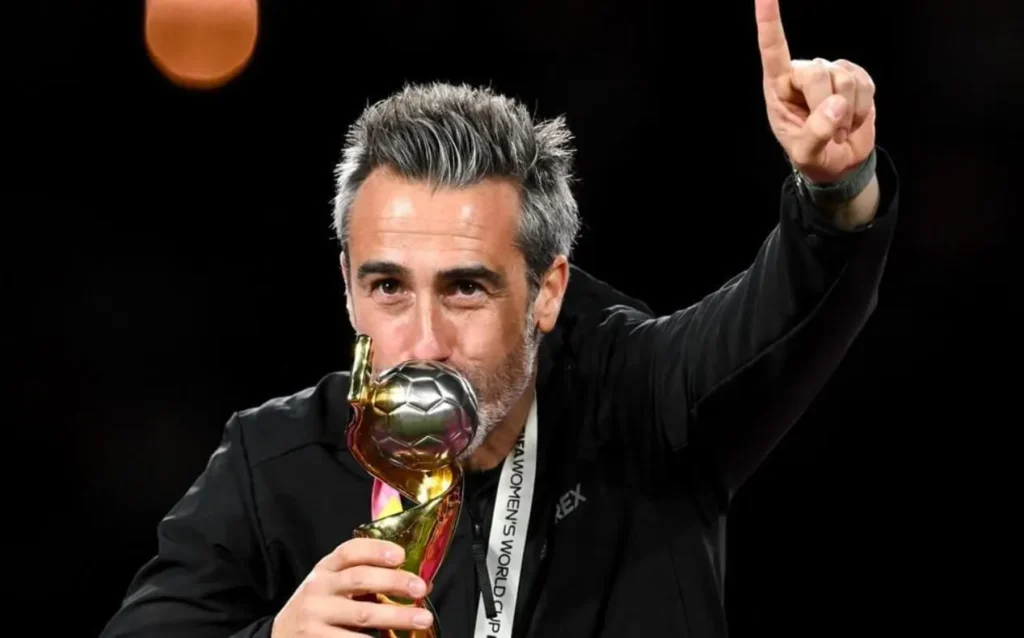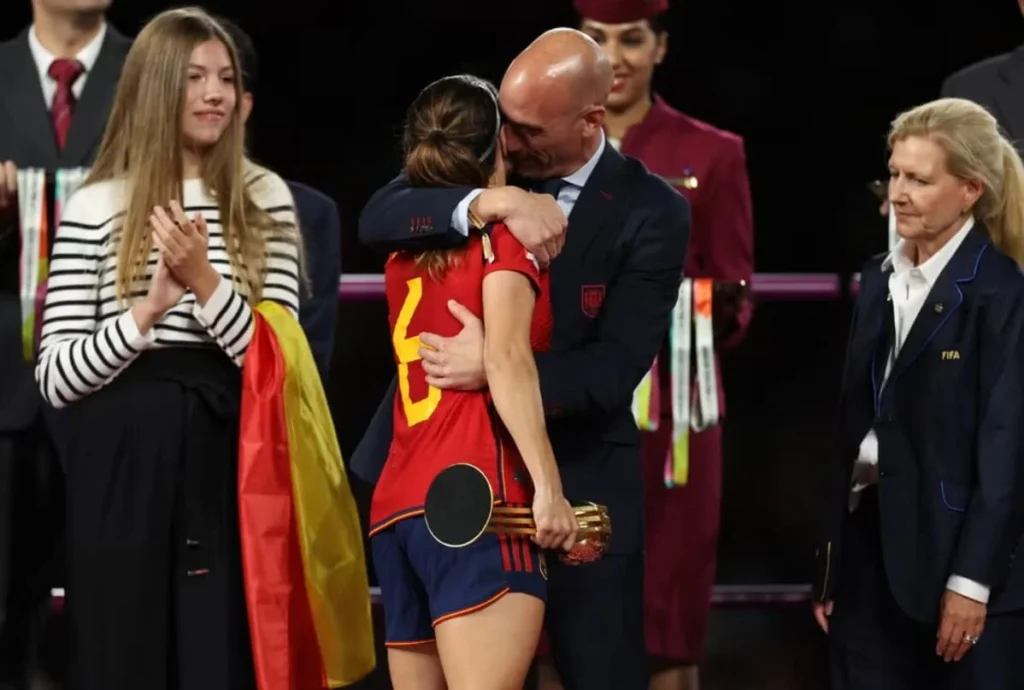
In the dynamic world of sports, few events have the potential to stir as much controversy and emotion as off-field indiscretions. When these moments play out in public, especially at the zenith of a team’s success, they can cast shadows that linger long after the incident itself. The recent turmoil within Spain’s footballing community, stemming from Luis Rubiales’ controversial act, is a testament to this very phenomenon.
The dismissal of Jorge Vilda, coming hot on the heels of Spain’s World Cup victory, presents a complex narrative of triumphs marred by administrative discord. As details emerge and reactions intensify, it becomes clear that the repercussions of a singular act can ripple through an entire sporting ecosystem, challenging the integrity of institutions and individuals alike.
The Rise and Fall of Vilda
A dedicated professional, Vilda had served as both Spain’s coach and sporting director, spearheading the country to its World Cup win. However, despite this achievement, an incident during the final celebrations in Sydney cast a long shadow over his tenure.
“I was the victim of an assassination,” claimed Luis Rubiales, the federation’s president, defiantly addressing the media after the event.
Rubiales had stirred a hornet’s nest when he surprisingly kissed player Jenni Hermoso during the medal presentation. This act would set off a chain reaction that would eventually engulf Vilda.
The Backlash
The incident left the football community divided and distraught. Vilda, caught in the eye of the storm, publicly applauded Rubiales’ speech post the incident. This move was viewed by many as Vilda aligning himself with Rubiales, particularly when Rubiales presented a narrative of being a victim and denounced what he termed as “false feminism.”
However, in a subsequent twist, Vilda distanced himself from the president’s actions.
“The president’s behaviour with Hermoso was unacceptable and inappropriate,” Vilda later clarified in an official statement.
This change of stance further complicated matters. It became evident that Vilda’s position was increasingly precarious when a whopping 81 players, with the entire World Cup-winning squad among them, declared their unwillingness to represent the national team under the present administration. Additionally, 11 members from the coaching staff handed in their resignations, further escalating the crisis.
The Decision to Dismiss
Pedro Rocha, the interim president, seeking to mitigate the growing unrest and rebrand women’s football, took the difficult decision to part ways with Vilda. Though the federation cited no specific reasons for the dismissal, the move was largely seen as an attempt to quell the disquiet within the team and staff.

The dynamics of this decision are further elucidated in the table below:
| Factors Leading to Vilda’s Dismissal | Outcomes |
| Rubiales’ controversial act with Hermoso | Federation president under scrutiny |
| Vilda’s initial support for Rubiales | Raised eyebrows and speculation |
| Player and staff revolt | Weakened faith in the administration |
| Need to “renew” women’s football | New leadership and direction sought |
What Lies Ahead for Spain’s Football?
With Vilda’s exit, Spain’s football is at a crossroads. As they prepare to announce their squad for the upcoming matches against Sweden and Switzerland, the outcomes of which will influence their participation in the Paris Olympics, there’s an air of uncertainty.
Rocha, prioritizing the situation, held negotiations with Vilda to finalize the severance details, culminating in a formal announcement of the dismissal. Yet, the federation didn’t miss the chance to acknowledge Vilda’s contributions.
The RFEF statement graciously acknowledged Vilda’s role in the “growth of women’s football, leaving Spain as world champions.”
However, as the chapter on Vilda concludes, another begins. Montse Tome, Vilda’s former assistant, is slated to fill the void. Her ascent to the role hasn’t been devoid of controversies either. Tome, who seemingly endorsed Rubiales’ speech initially, was among the 11 staff members who later tendered their resignation.
In their statement, these members expressed their dissatisfaction over being seated in the front row during the assembly, implying a forced display of solidarity with Rubiales. They also rallied behind Hermoso, endorsing her claim of being a “victim of an assault.”
Final Thoughts
In the midst of these turbulent times for Spanish football, several key takeaways emerge:
- Accountability in Leadership: It’s paramount for sports governing bodies to maintain a level of decorum and respect. Leadership actions are always under the microscope, and any misstep can have significant repercussions.
- Player Solidarity: The unity displayed by the Spanish women’s team is a testament to their collective strength. Their decision to stand up against perceived injustices is a lesson in the power of group solidarity.
- Media’s Role: Events like these highlight the crucial role media plays in shaping narratives and driving change. Their persistent coverage brought light to an issue that might otherwise have been brushed under the rug.
- Future Precautions: Sporting federations worldwide should take this incident as a cautionary tale, emphasizing the need for rigorous ethical training and a clear understanding of boundaries for all involved.
- Resilience of the Sport: Despite the controversy, football, like other sports, has an innate ability to bounce back. The love for the game, both from players and fans, ensures that it will continue to thrive, even in the face of challenges.
The episode surrounding Vilda’s sacking and the subsequent fallout is a reminder of the broader issues that sometimes permeate the world of sports. However, with reflection and proactive measures, the sporting community can move forward, ensuring such incidents are few and far between in the future.































